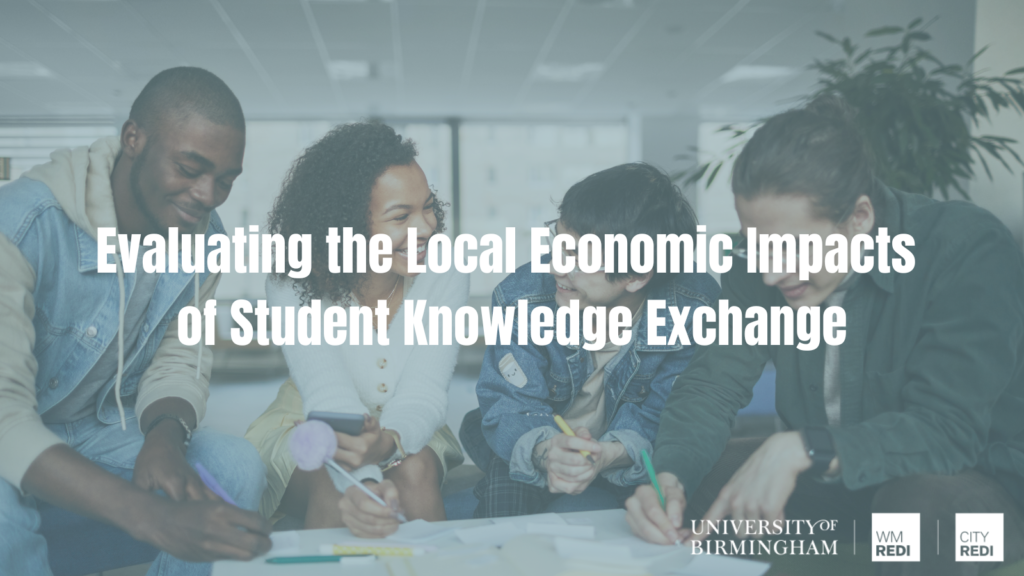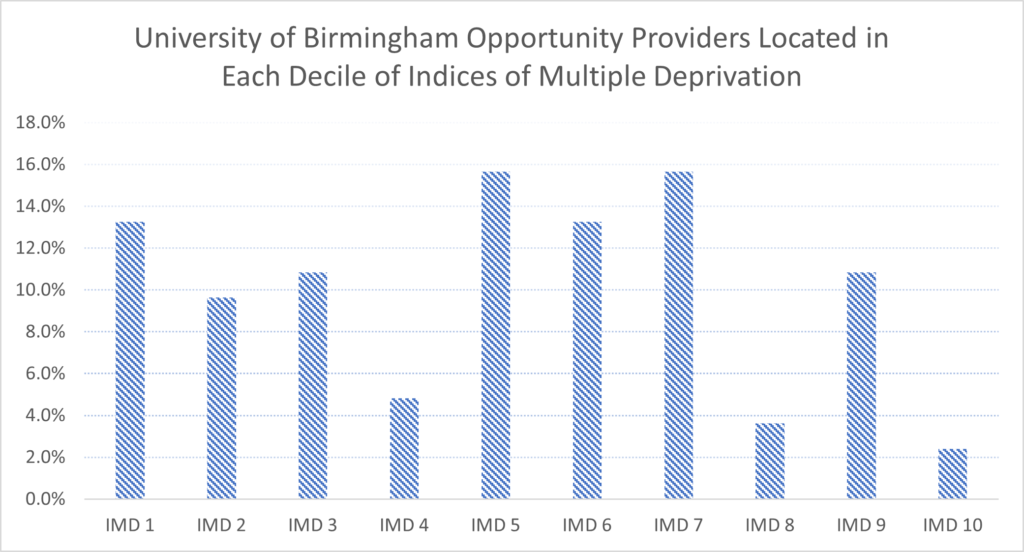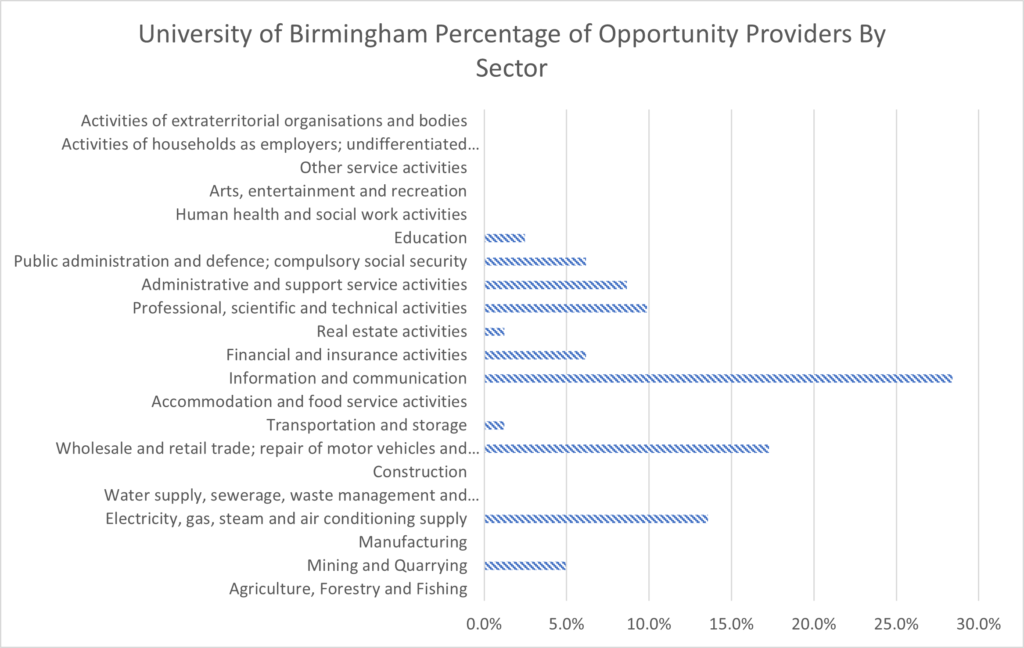
Johannes Read discusses the Impact Tool, developed to analyse the impact of student-led knowledge exchange on the local economy.
The Student Knowledge Exchange Re-Imagined- Removing Barriers, Engaging Communities project is funded by the Office for Students and Research England, to improve the engagement of under-represented groups and the not-for-profit sector to remove barriers and engage communities in knowledge exchange
The Student Knowledge Exchange Impact Tool was developed to analyse the impact of student-led knowledge exchange. This blog shows how the Impact Tool can be evidence of the impact of student internships on the local economy, by comparing the local economic strengths of an area and the strategic economic priorities.
The Economic Impact of Virtual Internships in Birmingham
The University of Birmingham worked with 83 different opportunity providers to provide internships for students throughout the project. To analyse the economic impacts of the knowledge exchange, the postcodes from each opportunity provider’s address were matched with the relative indices of multiple deprivation (IMD). The IMD splits the country into small postcode areas to show the areas of relative deprivation, where 1 is the most deprived and 10 is the least deprived area.
Figure 1 shows the IMD decile where each opportunity provider is located. One-third of the opportunity providers are located in the most deprived deciles 1- 3. This is opposed to 16.8% of opportunity providers in the least deprived deciles 8 – 10. The largest proportion of supported opportunity providers come in the middle of the deprivation scales with almost half (44.6%) of opportunity providers coming from IMD scales 5 – 7. The University of Birmingham has good representation for opportunity providers in the deciles 1 – 3, indicating that there is to some extent a removal of barriers for opportunity providers from those areas, the greatest beneficiaries are the opportunity providers in the middle of the IMD rankings. This limits the extent to which the benefits of student knowledge exchange support more deprived areas, although there is still good representation amongst opportunity providers from the relatively deprived parts of the country.

The impact of student knowledge exchange on the West Midlands is shown in Figure 2. Around one-third (31.3%) of opportunity providers worked with are based in the West Midlands Combined Authority area. Outside of Birmingham, which makes up a large proportion of that with 24% of the total opportunity providers worked with, there are a handful of opportunity providers in the WMCA area. Overall, around half (53.0%) are from the broader West Midlands region (from Staffordshire to Stoke), and the other half are from elsewhere in the country.

The aims of the project are to support the flexible delivery of opportunities to students wherever they are in the country. On this basis, the project has done well to accommodate and provide opportunities in Birmingham and elsewhere. The more relevant metric for evaluating the impact on place of removing barriers to student access to knowledge exchange should be on the indices of multiple deprivation. There are challenges associated with accessing suitable opportunity providers. However, as around half of opportunity providers come from outside the West Midlands, there is scope to increase the proportion of opportunity providers in the West Midlands area to increase the impact of student knowledge exchange within the region.
Connecting Internships with Economic Strategies
The opportunity providers at the University of Birmingham were mainly in the Information and Communication (28.4%), Retail (17.3%), and Energy (13.6%) as shown in Figure 3. There are a smaller number of opportunity providers in Professional, Scientific and Technical (9.9%); Administrative (8.6%); Financial (6.2%); and Public Administration (6.2%) sectors.

The opportunity providers relate to a reasonable extent to the strategic aims of the Greater Birmingham and Solihull Local Enterprise Partnership (GBSLEP) Local Industrial Strategy (LIS). The business, professional, and financial services sectors are also referenced in the GBSLEP LIS as a key priority sector. However, there have been no virtual interns working in the strategic sectors identified in the LIS, namely the creative industries and manufacturing. This limits the impact of internships on the local economy. There is scope to increase engagement with opportunity providers from these industries, as well as health, low carbon and environmental technologies. Aligning opportunity provider engagement with the local industrial strategy of GBSLEP would increase the impact of knowledge exchange on the important strategic sectors of the economy.
Find out more about the Student Knowledge Exchange Impact Tool.
This blog was written by Hannes Read, Project Policy and Data Analyst, City-REDI / WMREDI, University of Birmingham.
Disclaimer:
The views expressed in this analysis post are those of the authors and not necessarily those of City-REDI or the University of Birmingham.
